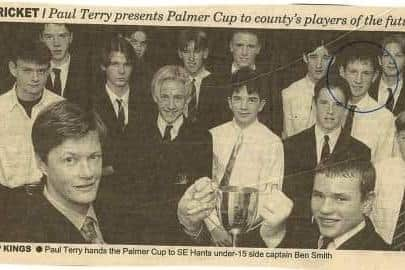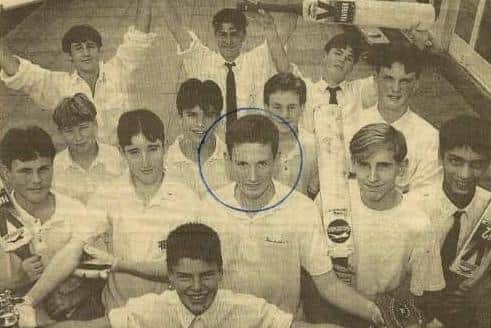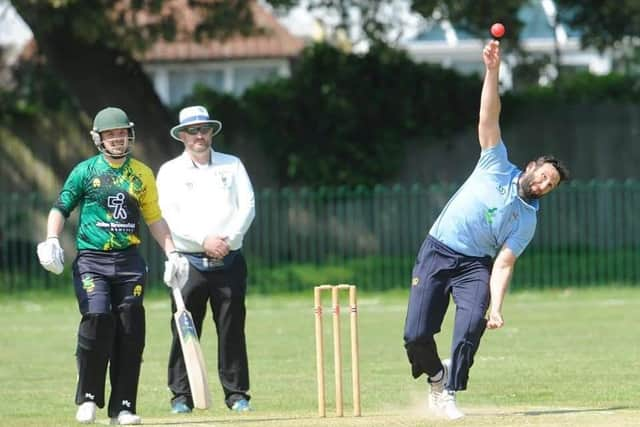Equity in Cricket: Does damning ICEC report into racism, sexism, classism and elitism come as a surprise? Of course it doesn't - this is my experience
and live on Freeview channel 276
The Independent Commission for Equity in Cricket (ICEC) has delivered its findings from a two-year investigation and has made 44 recommendations. The ICEC’s damning report concludes there is a prevalence of ‘elitism and class-based discrimination’ in cricket, ‘structural and institutional racism’ continues to exist within the game, black cricket has been failed and the ECB must develop a plan to revive it, and umpires regularly ignore abuse and dismiss complaints in both the professional and recreational games - among many other things which shines a horrible light on the game. You can read the full report here.
Being a white male, I have been lucky enough not to experience racism or sexism in the game I have played, umpired and loved for more than 40 years. I fell in love with cricket thanks to my dad and brother, watching Test matches and county cricket from a young age on telly and in person. I started playing at school in Hampshire before moving to Sussex, playing for clubs like Eastbourne and Three Bridges before joining the Sussex Cricket League’s umpiring panel, where I am now privileged to umpire Premier Division games where I have the best seat in the house for some quality recreational cricket.
Advertisement
Hide AdAdvertisement
Hide AdAs intimated earlier, it’s difficult for me to talk about racism or sexism in the game. And one of the main reasons for that is that I rarely played with any black players and not until my later years at Eastbourne did I play with any females. Maybe that is the problem in a nutshell. If I had done, would I have been more aware and exposed to the problem? Probably. Even now when you look around the teams I umpire on the whole are predominantly white. That could be down to many factors but Sussex is not a hugely diverse county.


But is everyone, whatever background, race, gender, given the same opportunity? Of course they are not. You look at where a lot of the younger members of Sussex Cricket Club’s squad come from and it’s private schools. Eastbourne College, Bede’s and Hurst College are just some of the schools that bring through brilliant cricketing talent. It is not a criticism of those schools or Sussex CCC - those establishments have the best facilities and coaches for players to develop. And every one of those players at Sussex deserve to be there.
But if there were an Alastair Orr or Tom Haines who went to Ifield Community College in Crawley, would they get the same opportunity with Sussex? Based on the history of the game, very unlikely. The cost alone of getting through an elite pathway is debilitatingThere is a very interesting chapter in the brilliant book Crickonomics: The Anatomy of Modern Cricket by Stefan Szymanski and Tim Wigmore that looks into the International players who have attended private schools compared to those who go to state schools. The difference is vast.
SEE ALSO Astonishing innings sees Sussex Cricket League side chase down 353 to win inside 38 overs for loss of just ONE wicket | Tymal Mills gives Sussex T20 Blast verdict: We’ve been poor – apart from three games
This is the area I can talk about in more depth because I did experience elitism myself in my younger playing days. I was a decent young cricketer but, and I will make this clear now, I was never going to play for England.One, because I was not good enough, technical issues with moving my feet, bowling too many four balls an over etc. But I was decent. At my state school, Brune Park in Gosport, I was a big fish in small pond. Along with David Emery we were the best school cricketers in the area for our age group - Matt Radford and Andrew Anthony might argue that point!We were both averaging above 50 with the bat in the schools league, we both averaged less than 15 with the ball and we helped win the Gosport and Fareham Schools Cup four years on the trot and the league title once.
Advertisement
Hide AdAdvertisement
Hide Ad

David and I had trials with Hampshire on more than one occasion, with no luck, but where we did get a chance was with our district side South East Hampshire. This involved players from Portsmouth, Gosport and Fareham. We were both picked for the squad for two consecutive years and we won the Palmer Cup two years in a row.
But did I play a huge part? No. I was given my token few overs and batted at either 10 or 11. I am not saying I deserved to be opening the batting or in the top order - there were some proper players in that side like Jordan Prowting, Simon Bell and Lawrence Prittipaul - but I was better than some of the players who were above me in the batting line-up. Why was this? I went to Brune Park. I didn't go to Portsmouth Grammar or St John’s College. If I had, who knows what could have been?
But there are no regrets. I enjoyed that time and enjoyed playing with my mates at school and in club cricket. Now I am reporting on and umpiring the game, I still see that elitism. I speak to a captain and they might say ‘we haven’t got our strongest side out yet because we haven’t got private school players yet’. It may be true, but if you are missing them for key games, why not give the ones who are available better opportunities? There is a huge talent around state schools, identify them and nurture them.
On the umpiring front, part of the report said ‘Umpires regularly ignore abuse and dismiss complaints in both the professional and recreational games’. I can only comment on the recreational game but I have heard colleagues ignoring comments on the field to avoid paperwork - I may have even done that myself. But I have also heard stories of people who think they won’t get the backing of the authorities if they do report it. In my experience in Sussex that is not the case - but I am again lucky enough to not have received a lot of abuse. Is that because I am a good umpire? Hopefully. Or is it because the players know I am a journalist and have the platform to write about the games? Probably! But umpires need the confidence and ability to manage games with the full backing from their local association or people will no longer want to do it.
Advertisement
Hide AdAdvertisement
Hide Ad

The ICEC’s report is damning but, like I said at the beginning, it comes as no surprise. The Azeem Rafiq case has shown there has been an issue within the sport for years at the higher levels of the game. That is just the tip of the iceberg. There needs to be a big change in the sport and in our society as whole to give more people more opportunities - no matter what their background, race, ability or gender.
Hopefully these findings will be the gateway to a better experience for all in, what I consider to be, the best sport in the world.